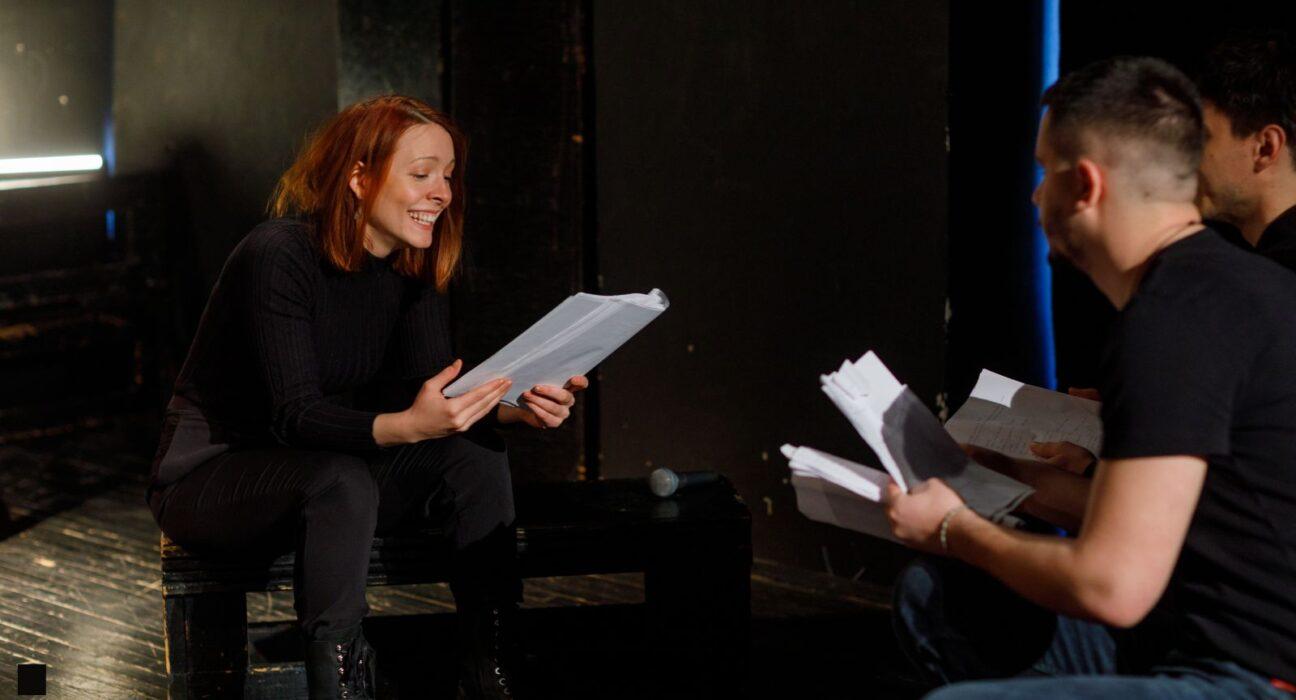I’m often asked, “Ramon how can I be a better speaker, like you”. There’s a lot of ways to be a better speaker. One way is to keep speaking and get better and better. The second way is to receive constructive feedback to help you get better. Third is to LEARN the tactics of owning the stage, public communication and connecting with an audience.
However, there’s one more way. To learn the art of improvisation, otherwise known as improv.
The art of improvisation isn’t just reserved for comedy clubs; it’s a powerful tool that can elevate your public speaking game to new heights.
Here’s how embracing improv can transform you into a confident and compelling speaker:
Enhanced Communication Skills
Improv teaches you to think on your feet and respond quickly to unexpected situations. This translates into sharper communication skills, allowing you to articulate your thoughts clearly and concisely, even when faced with challenging questions or interruptions during your presentation.
Banishing Stage Fright with Improv
One of the biggest hurdles for many speakers is stage fright. Improv helps you overcome this fear by fostering a mindset of spontaneity and embracing the unknown. You’ll learn to trust yourself and your instincts, reducing anxiety and boosting your confidence on stage.
Embracing Mistakes
In improv, there are no mistakes, only opportunities for growth. This mindset shift is invaluable for speakers, as it encourages you to embrace imperfection and adapt to unforeseen circumstances with grace. Instead of dwelling on a slip of the tongue or a technical glitch, you’ll learn to pivot seamlessly and keep the show rolling.
Connecting with Your Audience
Improv thrives on interaction and engagement with others. By honing your improvisational skills, you’ll become adept at reading your audience’s cues, gauging their reactions, and adjusting your delivery accordingly. This connection fosters a sense of authenticity and rapport, making your message more relatable and memorable.
Sparking Creativity
Improv encourages you to think outside the box and explore new ideas without fear of judgment. By embracing spontaneity and experimentation, you’ll unleash your creative potential and infuse your presentations with fresh perspectives and originality.
Adapting to Change
In today’s fast-paced world, adaptability is key. Improv teaches you to roll with the punches and adapt to changing circumstances with agility. Whether it’s a last-minute venue change or an unexpected technical glitch, you’ll be equipped to handle any curveball that comes your way with poise and professionalism.
Building Trust and Teamwork
Improv is inherently collaborative, requiring trust and teamwork among performers. As a speaker, cultivating these same qualities will help you foster a sense of camaraderie and connection with your audience. By creating a supportive environment where everyone feels valued and included, you’ll forge stronger connections and leave a lasting impact.
So, if you’re ready to take your public speaking skills to the next level, why not give improv a try? Whether you’re a seasoned pro or a novice speaker, the benefits of embracing spontaneity and creativity are boundless. So go ahead, step out of your comfort zone, and unleash your inner improviser. Your audience will thank you for it.
What Happens at an Improv Class
At an improv class, participants actively engage in a series of exercises and activities designed to develop their improvisational skills. Here’s what typically occurs during an improv class:
Performing Warm-Up Exercises
Participants begin with warm-up activities to energize and prepare themselves for improvisation. These exercises include physical warm-ups, vocal drills, and games aimed at stimulating creativity and spontaneity.
Participating in Group Improv Activities
Participants then take part in various group activities and games that focus on different aspects of improvisation. These activities emphasize active listening, quick thinking, and collaborative storytelling.
Engaging in Scene Work
During scene work exercises, participants are paired or grouped to perform improvised scenes. These scenes may be based on suggestions from the instructor or the class, encouraging participants to build upon each other’s ideas and create engaging narratives on the spot.
Receiving Feedback and Reflecting
Throughout the class, instructors offer feedback and guidance to help participants improve their improvisational skills. Group discussions and reflections provide opportunities for participants to share experiences and learn from one another.
Taking Risks and Experimenting
Improv classes create a safe space for participants to take risks and experiment. They’re encouraged to step out of their comfort zones, explore different characters and scenarios, and embrace the unexpected.
Building Trust and Connection
Emphasis is placed on building trust and connection among participants. Through exercises promoting active listening, collaboration, and support, participants develop camaraderie and teamwork that enhance the improvisational experience.
Having Fun and Laughter
Above all, improv classes are enjoyable! Participants are urged to let loose, be playful, and relish the process of spontaneous creativity. Laughter is common, as participants revel in the joy of creating something from nothing.
Overall, improv classes provide a lively and interactive environment where participants actively develop their improvisational skills, gain confidence, and connect with others in a supportive and enjoyable setting.
Related articles:











